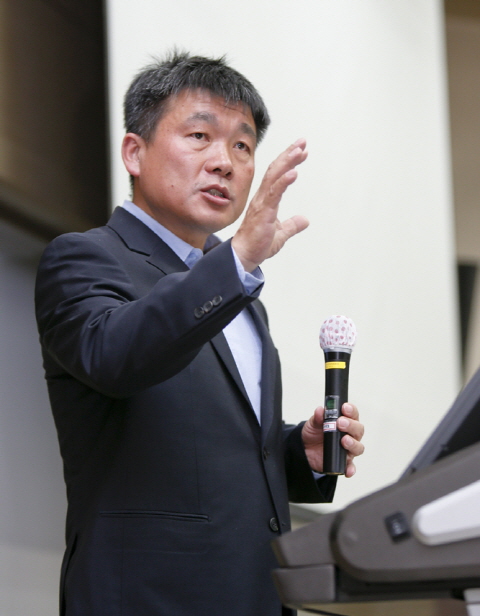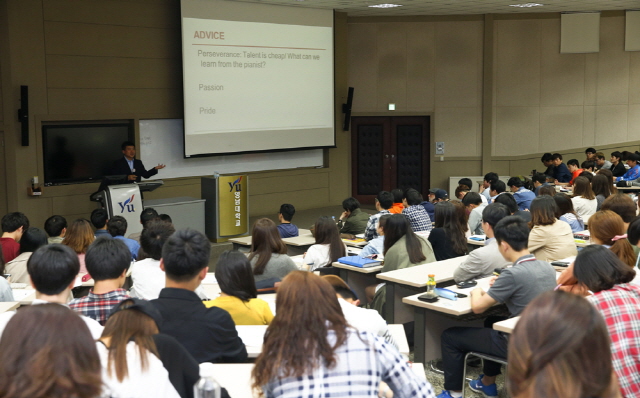Choi Sang-hoon (Economics 81), Korean correspondent for the New York Times
Became a global sensation for his coverage of the 'Nogeun-ri Genocide' when he was a correspondent for AP in 2000
[May 8, 2014]
New York Times Korean correspondent Choi Sang-hoon (51) visited his alma mater, YU. He was invited as a speaker for the '21st century knowledge lecture' by the College of Business & Economics'.
At 3 p.m. on the 7th at the YU Business & Economics Hall Room 208 with the attendance of over 270 students, Choi took the podium at his alma mater and spoke on 'Attitude and role as a journalist for a foreign newspaper' and 'Foreign press in the eyes of Koreans' based on his experience as a journalist for a foreign newspaper for 23 years.
At the end of the special lecture, Special Correspondent Choi Sang-hoon said, "There are many people in the world with good backgrounds and talents, but the most important thing to be successful in your field is to never stop working hard," and added, "I hope that you find a field that you are interested in and continuously think about and work at being the best in that field."

Choi, who is from the YU Department of Economics Class of '81, is a world renowned journalist who worked as a reporter for The Korea Herald, Korean correspondent for AP, and is currently the Korean correspondent for the New York Times since 2005.
When he was the Korean correspondent for AP in 2000, he became the first Korean to win the 'Pulitzer Prize', which is basically the 'Nobel Prize for journalists' with his coverage on the 'Nogeun-ri Genocide' that created waves around the world.
The 'Nogeun-ri Genocide' refers to the mass murder of Korean civilians who were escaping war and on their way to find refuge from Nogeun-ri in Yeongdong-gun, Chungbuk by the US military during the Korean War in 1950. After a year of investigative reporting, Choi revealed the truth after half a century and disclosed it to the world. Choi's coverage was recorded as the most representative investigative report for the global press. With this, Choi won the Pulitzer Prize, the US George Polk Award, International Investigative Report Award from the International Consortium of Investigative Journalists, and the Journalists Association of Korea's Korean Journalist Special Award. Furthermore, he won the Society of Publishers in Asia Award and the Asian Human Rights Journalist Award for his coverage on the Myanmar democratization movement in 2008 and the damages of the cyclone that hit Myanmar in 2009.











